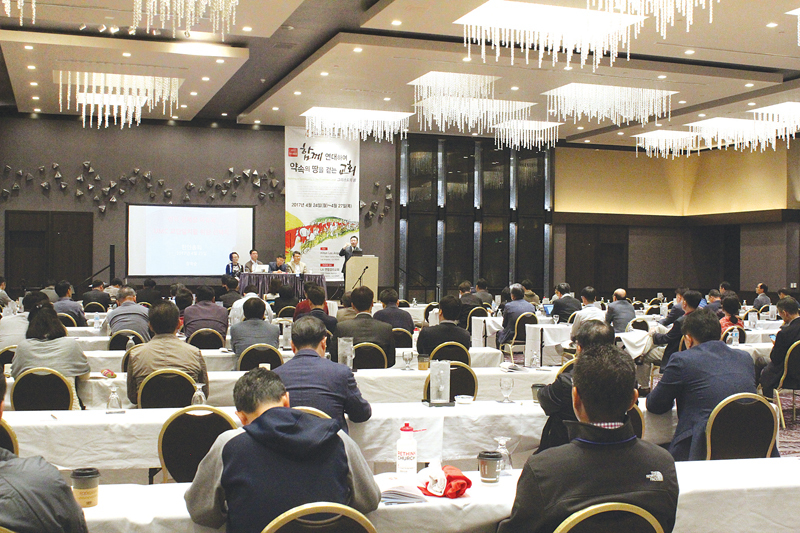
As the United Methodist Church (UMC) is considering whether it will change its stance on homosexuality, Korean American clergy and lay members discussed how they have been dealing with that very issue during the annual Korean Association of United Methodists (KAUM) Annual Convocation, which is taking place from April 24 to 27 in Los Angeles.
Currently, the UMC does not formally accept homosexuality. Under the denomination's bylaws, known as the Book of Discipline, ordination of those in same-sex relationships is forbidden, and clergy are prohibited from conducting same-sex marriages.
The denomination was set to discuss and decide whether it will change its stance in 2016 at its last General Conference, a gathering of almost 1,000 delegates that usually convenes every four years and one that is the highest decision-making body in the UMC. Instead, the conference opted to postpone the decision and formed a 32-member commission called the Commission on a Way Forward, solely dedicated to exploring the UMC's Book of Discipline, deliberating what options would be best for the UMC, and giving recommendations to the UMC's Council of Bishops.
A special General Conference will convene in February of 2019, at which time delegates will only discuss the issue of homosexuality, and act on a report given by the UMC's Council of Bishops.
The KAUM Annual Convocation, themed "Building a Community in the Promised Land,' featured a session on Tuesday morning with a four-member panel discussing the various stances that the UMC could decide to take, and the ways that the panelists and the members of their churches have been discussing, or not discussing, the issue of homosexuality.
"This has become an issue that, even if we wanted to avoid it, we can no longer avoid," said Paul Hak-Soon Chang, the executive director of the United Methodist Council on Korean Ministries, who was the first panelist to speak. "Eventually, the denomination must make a decision."
Many of the panelists, all of whom are pastors, said some members of their congregations have approached them first, asking what their positions are on homosexuality.
Samuel Hong, the senior pastor of Korean United Methodist Church of Santa Clara Valley, said he openly shared the current situation in the denomination during Sunday announcements.
Hong said he is taking a careful approach, and told his congregation that "even if we make our decision after the UMC makes its decision, it won't be too late."
The issue compelled some members of Chicago Life United Methodist Church, led by Mi-Sook Park, to take a strong stance first, eventually leading Park to host an open forum on the topic.
"I openly asked them, "Who thinks homosexuality is a sin? Who doesn't think so?' And we had a time of open discussion," Park said. But in her congregation, most, if not all, of the members believe that practicing homosexuality is a sin, she said.
Kwang Tae Kim, the president of KAUM, said the panel discussion focused on homosexuality this year because of its potential impact on Korean churches.
"The issue of homosexuality may affect Korean churches the most," Kim said, "and we must consider what strategy we will take moving forward."
Meanwhile, the Commission on a Way Forward includes one Korean American member, Myungrae Kim Lee, who was present at the KAUM convocation. Lee said the commission has been working hard to seek the best outcome.
"Such a diverse crowd of people have come together, but it has been so hard to reach a consensus," Lee said of the commission meetings. Since the commission was formed, it has met three times.
Lee added that, as an Asian living in the U.S., she has been aiming to voice the concerns of minority ethnic groups living within America, and urging the commission to "consider the importance of the ethnic churches in the U.S." As an international denomination, the UMC has annual conferences abroad, including in the Philippines, Europe, and Africa.
The convocation is taking place at the Hilton Los Angeles Airport and at Los Angeles United Methodist Church, and features worship sessions, plenary sessions, and small group sessions on topics such as pastoring in cross-cultural contexts, women in ministry, and ministering to youth and young adults.
About 300 Korean churches and 700 Korean pastors are currently a part of the United Methodist Church, according to Kim.


















